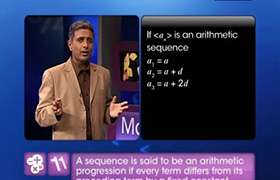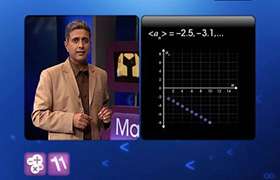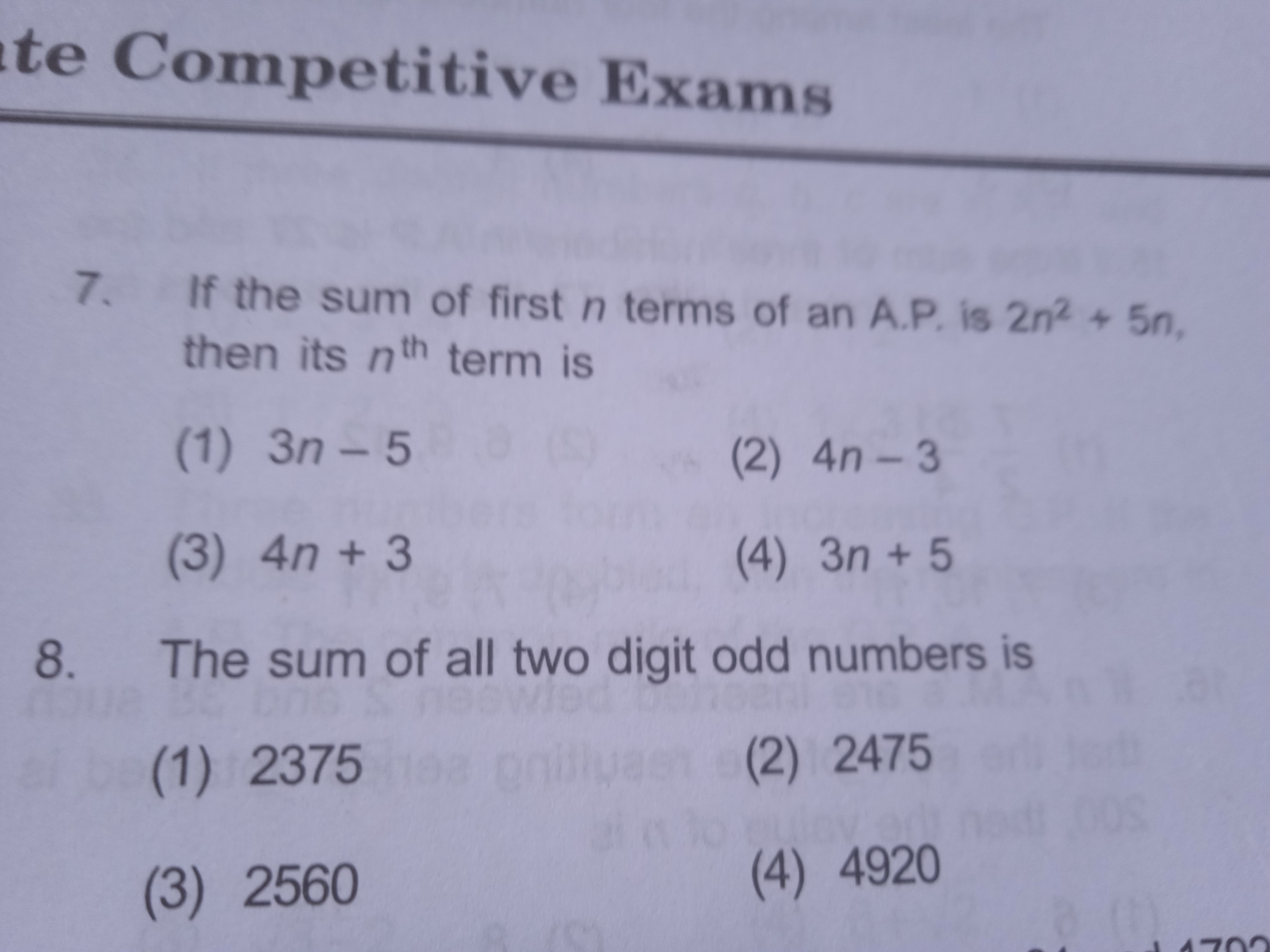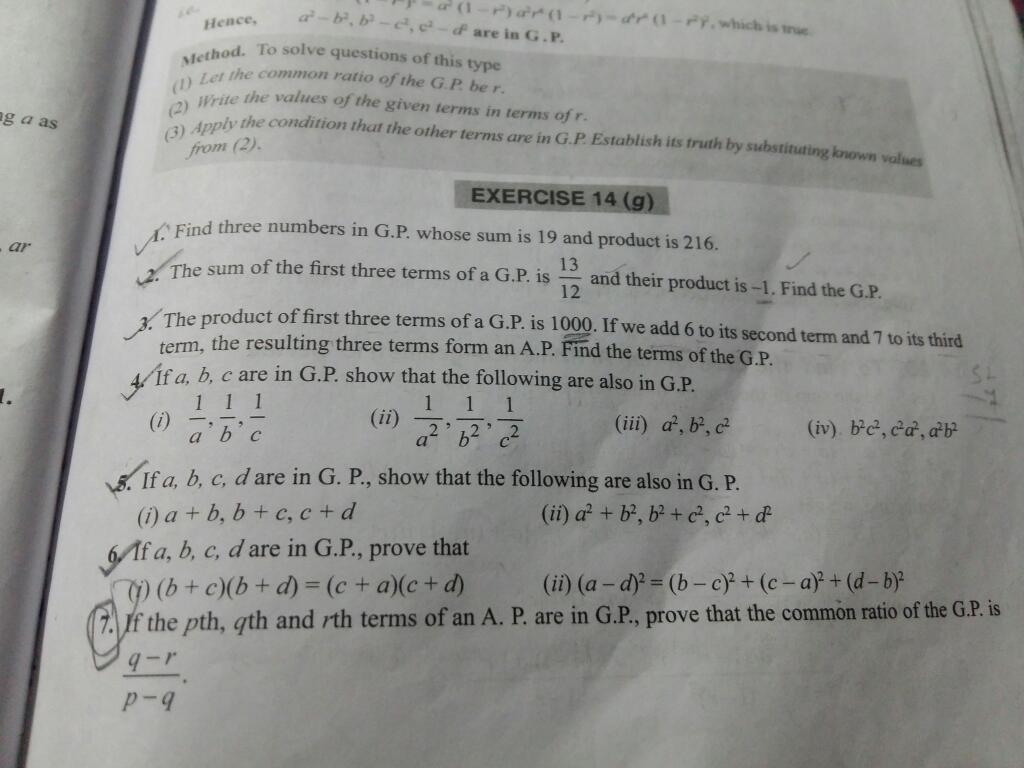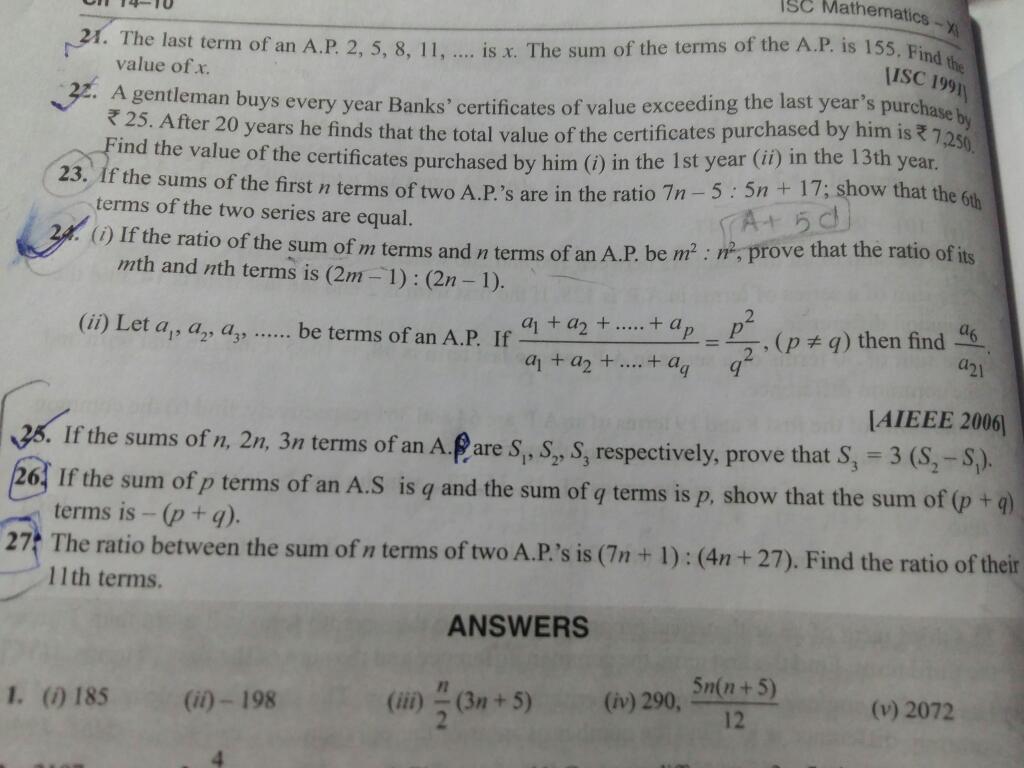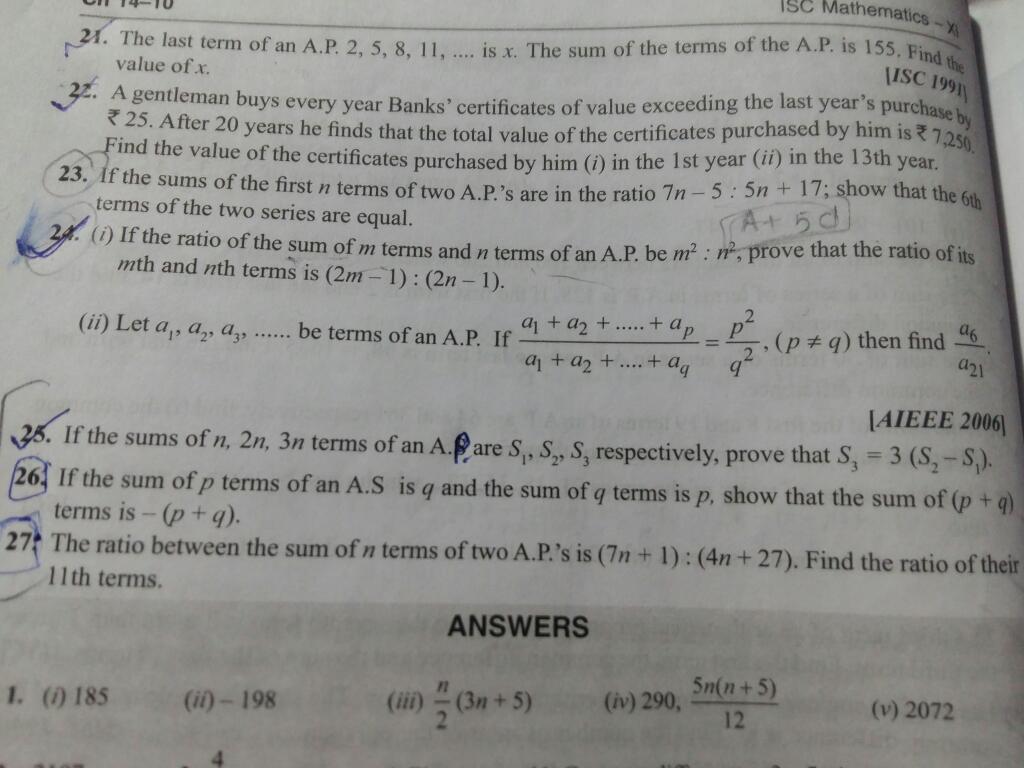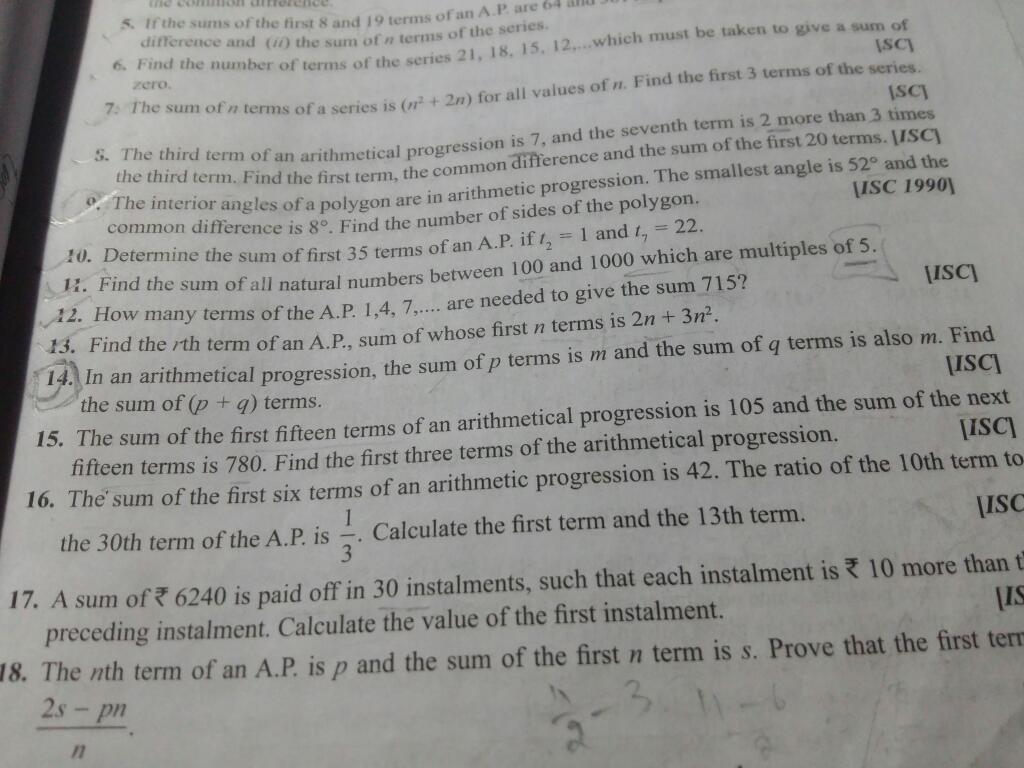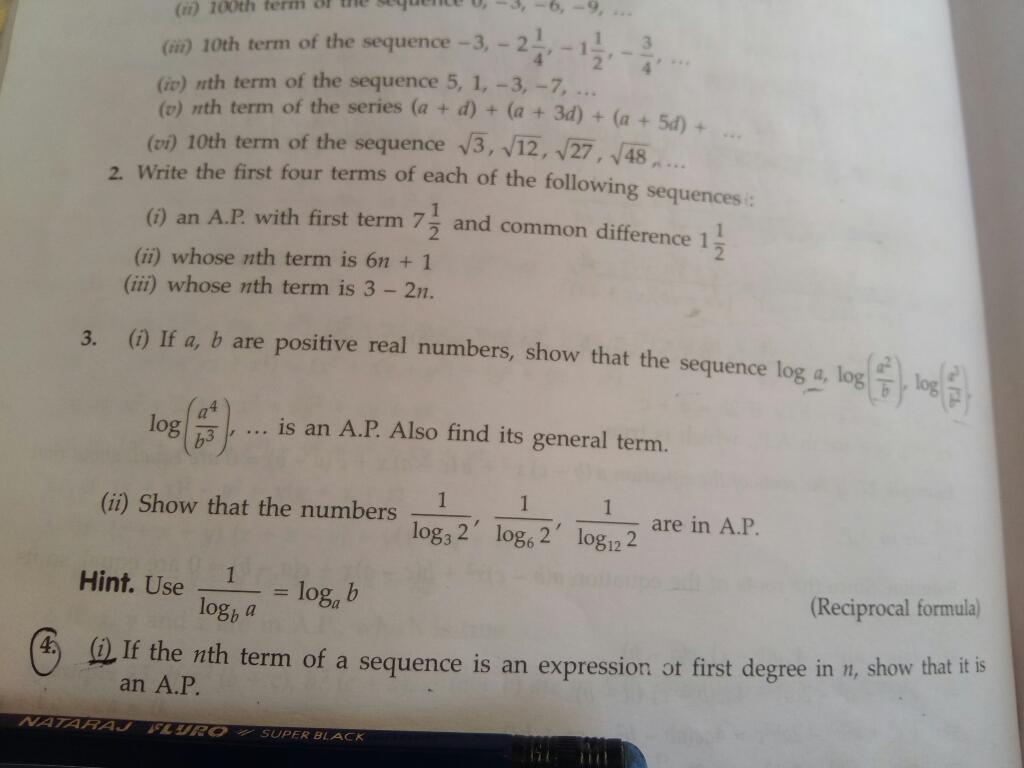CBSE Class 11-science Answered
Q. In an A.P the sum of the terms equidistant from the beginning and end is always same and equal to the sum of first and last terms .Please prove the above with each step properly written .
Asked by conveyrajat | 15 May, 2014, 11:52: AM
Let the first and the last terms of an AP are a and l respectively
Common difference = d, then we have
a, a + d, a + 2d, a + 3d .............. l - 3d, l - 2d, l - d, l
The sum of numbers equidistant from the beginning and the end, we get
Common difference = d, then we have
a, a + d, a + 2d, a + 3d .............. l - 3d, l - 2d, l - d, l
The sum of numbers equidistant from the beginning and the end, we get
a + 3d + l - 3d = a + l ... (i)
Sum of the first and last term = a + l ... (ii)
Thererfore, (i) = (ii)
Thererfore, (i) = (ii)
Answered by Avinash Soni | 15 May, 2014, 12:14: PM
Concept Videos
CBSE 11-science - Maths
Asked by sanjuktamukherjee165 | 24 Oct, 2021, 11:04: AM
CBSE 11-science - Maths
Asked by Vibhorjarora798 | 21 Aug, 2021, 05:43: PM
CBSE 11-science - Maths
Asked by hirugadeshravani | 26 Dec, 2020, 07:37: AM
CBSE 11-science - Maths
Asked by pavanindr | 09 Feb, 2020, 04:56: PM
CBSE 11-science - Maths
Asked by lovemaan5500 | 28 Jan, 2019, 06:29: AM
CBSE 11-science - Maths
Asked by shaikh.farid25 | 05 Nov, 2018, 07:03: PM


